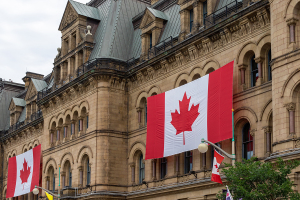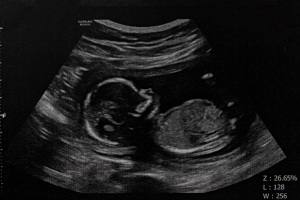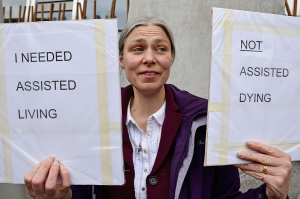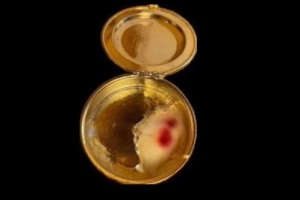Prostitutes May Be Able to Roam Free in San Francisco
SAN FRANCISCO, California (AP) - In this live-and-let-live town, where medical marijuana clubs do business next to grocery stores and an annual fair celebrates sadomasochism, prostitutes could soon walk the streets without fear of arrest.
A sex worker who goes by the name of Violet stands at a San Francisco, California, bus stop.
San Francisco would become the first major U.S. city to decriminalize prostitution if voters next month approve Proposition K, a measure that forbids local authorities from investigating, arresting or prosecuting anyone for selling sex.
The ballot question technically would not legalize prostitution, since state law still prohibits it, but the measure would eliminate the power of local law enforcement officials to go after prostitutes.
Proponents say the measure will free up $11 million the police spend each year arresting prostitutes and allow them to form collectives.
"It will allow workers to organize for our rights and for our safety," said Patricia West, 22, who said she has been selling sex for about a year by placing ads on the Internet. She moved to San Francisco in May from Texas to work on Proposition K.
Even in tolerant San Francisco, where the sadomasochism fair draws thousands of tourists and a pornographic video company is housed in a former armory, the measure faces an uphill battle, with much of the political establishment opposing it.
Some form of prostitution is legal in two states. Brothels are allowed in rural counties in Nevada. And Rhode Island permits the sale of sex behind closed doors between consulting adults, but it prohibits street prostitution and brothels.
In 2004, almost two-thirds of voters in nearby Berkeley rejected decriminalization. But proponents of Proposition K say their proposal has a better shot in San Francisco, which they believe is more sexually liberal than the city across the bay.
After all, the world's oldest profession has long been established here. During the Gold Rush, the neighborhood closest to the piers was a seedy pleasure center of sex, gambling and drinking known as the Barbary Coast.
These days, on certain corners, prostitutes sell their bodies day and night, ducking into doorways and alleys when police pass. One recent afternoon in the Mission District, six prostitutes were plying their trade on a single block.
Police made 1,583 prostitution arrests in 2007 and expect to make a similar number this year. But the district attorney's office says most defendants are fined, placed in diversion programs or both. Fewer than 5 percent get prosecuted for solicitation, which is a misdemeanor punishable by up to six months in jail.
Proposition K has been endorsed by the local Democratic Party. But the mayor, the district attorney, the police department and much of the business community oppose the idea. They contend that it would increase street prostitution, allow pimps the run of neighborhoods and hamper the fight against sex trafficking, which would remain illegal because it involves forcing people into the sex trade.
The San Francisco Chronicle editorialized against the measure, saying it could make the city a magnet for prostitution.
If the proposal passes, "we wouldn't be able to investigate prostitution, and it's going to be pretty difficult for us to locate these folks who are victims of trafficking otherwise," said Capt. Al Pardini, head of the police department's vice unit. "It's pretty rare that we get a call that says, 'I'm a victim of human trafficking' or 'I suspect human trafficking in my neighborhood.' "
The proposition would also prohibit police from accepting federal or state funds for sex trafficking investigations that involve racial profiling. Such investigations often arise from raids on brothels that advertise as Asian massage parlors.
"We feel that repressive policies don't help trafficking victims and that human rights-based approaches, including decriminalization, are actually more effective," said Carol Leigh, co-founder of the Bay Area Sex Workers Advocacy Network and a longtime advocate for prostitutes' rights.
But San Francisco District Attorney Kamala Harris said the ballot question mistakenly assumes that prostitution is a victimless crime.
"The crime of prostitution does not exist by itself," Harris said. "Along with it come pimps, johns and other crimes that really impact the safety of neighborhoods."
If the measure passes, supporters say, prostitutes would not feel the need for pimps as protection. But opponents insist that it would embolden pimps who trap drug addicts into prostitution by plying them with drugs.
"The proponents usually paint a fairly rosy picture of two consenting adults and a monetary exchange at the end," Pardini said. "They don't factor in the people that are being exploited and people that are being controlled, the ones manipulated both physically and chemically."





























